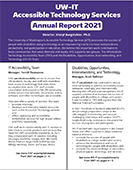2021 UW-IT Access Technology Services Annual Report
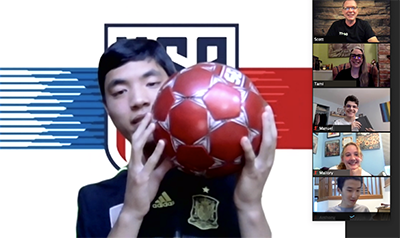
Director, Sheryl Burgstahler, Ph.D.
The University of Washington’s Accessible Technology Services (ATS) promotes the success of people with disabilities using technology as an empowering tool to increase independence, productivity, and participation in education. We believe this important work contributes to lively communities that value diversity and equity. ATS supports two groups: The Information Technology Accessibility Team (ITAT) and the Disabilities, Opportunities, Internetworking, and Technology (DO-IT) Team.
IT Accessibility Team
Manager, Terrill Thompson
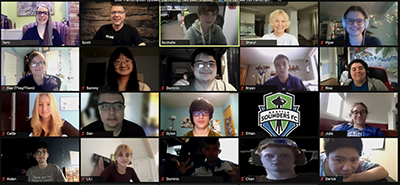
ITAT serves to ensure that UW students, faculty, and staff with disabilities have access to technology that helps them accomplish their work. ITAT staff provide consultation and support to the UW community to help ensure that websites, documents, videos, software, and other technologies are accessible.
They also offer a variety of services. The team
- provides trainings,
- develops and maintains helpful resources such as the Accessible Technology website (uw.edu/accessibility), and
- offers captioning and accessibility remediation services for high impact videos and PDFs respectively.
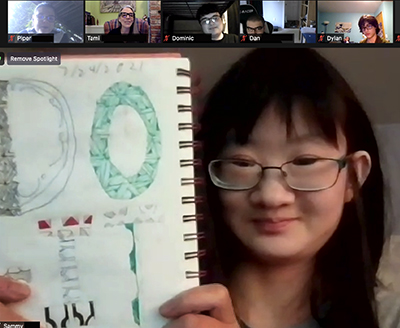
ITAT staff work collaboratively with IT vendors to help them to provide products and services that meet the UW’s accessibility standards. In 2021, they collaborated with 30 vendors including DocuSign, DocFinity, Google, H5P, Microsoft, Mural, Pearson, Kaye-Smith (UW Physician Billing), Workday, Zoom, and many others.
Disabilities, Opportunities, Internetworking, and Technology
Manager, Scott Bellman
DO-IT has continued to secure external funding to address accessibility issues statewide, nationally, and internationally. Working with UW and external partners, DO-IT supports activities that increase the success of people with disabilities in college and careers. It was founded in 1992 with a grant from the National Science Foundation (NSF).
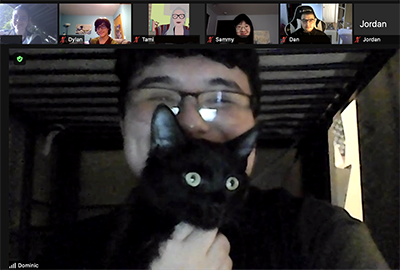
In 2021, hundreds of students attended DO-IT’s virtual college-preparation camps at the UW, engaged in mentoring, and secured challenging internships and careers. DO-IT’s longitudinal study continues to document the success of programs and participants.
DO-IT worked with organizations in the United States and other countries to adapt evidence-based practices to
- promote the success of people with disabilities in college studies and careers;
- advance the development and use of technology for people with disabilities; and
- promote the universal design of instruction, physical spaces, technology, and services.
IT Accessibility Team
IT Accessibility Team

1,994 PDF Documents Remediated
ITAT staff provided free remediation of UW PDF documents that are highly visible, high-impact, multiple use, and/or strategic. In 2021, ITAT staff remediated 1,994 documents totaling 21,976 pages, positively affecting thousands of students, faculty, staff, and visitors as they access public-facing documents. Examples of high-impact documents remediated include the nine Canvas model courses featured on IT Connect, UW Medicine COVID-19 informational flyers in multiple languages, and the Year in Review from the office of the Ombud. For additional information about document accessibility, see uw.edu/accessibility/documents.
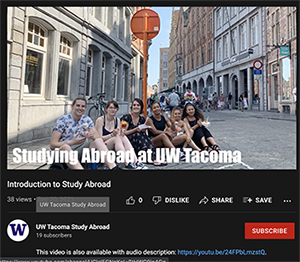
515 Videos Captioned
ITAT staff provides free captioning of UW videos that are highly visible, high-impact, multiple use, and/or strategic. In 2021, ITAT staff captioned 515 videos with over 109 hours of run time, estimated to impact over 119,000 viewers. Examples of high impact videos captioned include videos for UW Medicine and EH&S related to the COVID-19 and videos for several courses. ITAT staff also helped UW video owners add audio description to their videos, a standard technique that makes highly visual video content accessible to individuals who are unable to see the video. Of the 515 videos, 46 videos were audio described. For additional information about video accessibility, including ITAT’s free captioning service, see uw.edu/accessibility/videos.

30 Vendor Partnerships
ITAT staff work collaboratively with many of the technology vendors with whom the UW does business, in order to help them design and develop more accessible products and services. Key partnerships in 2021 included DocuSign, DocFinity, Google, H5P, Microsoft, Mural, Pearson, Kaye-Smith (UW Physician Billing), Workday, and Zoom.
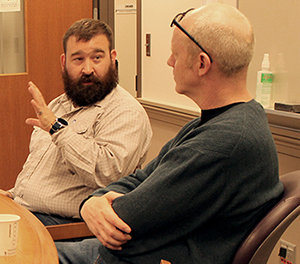
100+ Presentations and Events
ITAT staff host standing monthly activities such as the UW Web Accessibility/Usability Meetup and Accessible Technology Webinar Series. They also provide three half-day trainings per year to their network of IT Accessibility Liaisons and deliver customized trainings on request to campus units and departments. In May 2021, ITAT coordinated the “Zero Errors” Campaign, a university-wide effort to train and encourage the UW community to use available accessibility checker tools to reduce or eliminate their machine-detectable accessibility errors. ITAT staff are globally recognized for their expertise on IT accessibility, and, in 2021, they gave presentations at several national conferences, including the CSUN Assistive Technology, Association of Higher Education and Disability, EDUCAUSE, HighEdWeb, and Accessing Higher Ground conferences.
Collaborator Spotlights
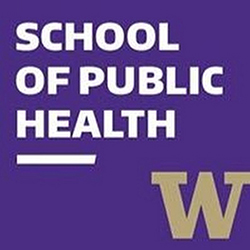
School of Public Health (SPH)
SPH has integrated accessibility into their communications workflow, including in graphics, videos, social media, and web development. They think of universal design and accessible technology as part of their role in promoting equity and inclusion for their students. As evidence of their commitment, theirs is the only website to successfully attain a perfect accessibility score in Siteimprove (the UW’s enterprise web accessibility checker) during the Zero Errors Campaign in May 2021. They have also captioned 100% of the videos on their YouTube channel, which includes over 170 videos. In 2021, SPH published the 50th Anniversary edition of the UW Public Health Magazine, a visually rich print publication that was sent to alumni and donors, and supplemented that with an equally well-designed accessible HTML version.

Continuum College
In 2021, Continuum College demonstrated a wide-ranging and steady commitment to accessibility. Their staff actively worked to build their accessibility knowledge through EDUCAUSE trainings and national accessibility conferences, and regularly had representatives at ATS-hosted meetups, webinars, and other events. They had representatives on the IT Accessibility Task Force and in the IT Accessibility Liaisons Network; and they helped to facilitate ATS collaboration with key vendors. They also added accessibility standards to their course quality review process, and regularly used accessibility checkers such as Ally and Siteimprove. Their efforts are documented in more detail in their 2021 Year in Review publication, which includes an entire section on “Improving Accessibility to Enhance the Online Classroom Experience for All Students.”
ITAT 2021 Highlights
|
Organized a “Zero Errors” |
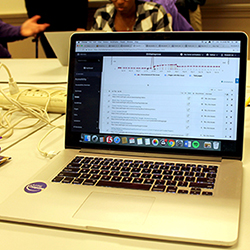 |
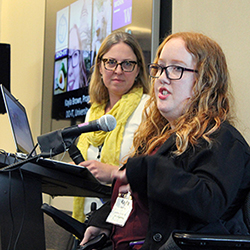 |
Hosted a full day |
|
Coordinated three half-day |
 |
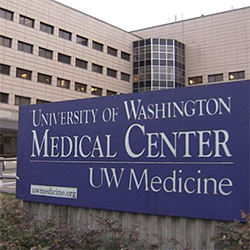
|
Worked extensively |
The DO-IT Team
The DO-IT Team
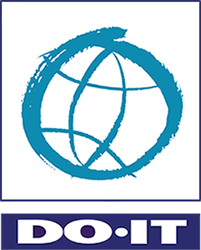
Grant-Funded Projects
DO-IT staff worked on many projects funded by the National Science Foundation (NSF). Ongoing projects included AccessComputing, AccessCSforAll, Access to Informal STEM Learning, AccessINCLUDES, and Neuroscience for Neurodiverse Learners. DO-IT also finalized the Access Engineering Research Centers (ERC) and ERC INCLUDES grants. In January, staff began AccessADVANCE. In 2021, DO-IT received funding from NSF for new AccessComputing and AccessCSforAll projects, Creating and Testing Data Science Learning Tools for Secondary Students with Disabilities, and two subawards: The Alliance for Identity-Inclusive Computing Education and The Alliance of Persons with Disabilities and Intersectionality for Inclusion, Networking, and Transition Opportunities in STEM. Staff also managed DO-IT’s state-funded Scholars program as well as maintained resources, activities, and collaborations related to legacy projects.

60+ Internships
DO-IT participants engaged in over 60 internships with a majority being paid internships in STEM fields. Locations included Dell, Google, Electronic Arts, Microsoft, Facebook, Capital One, Amazon, Oracle Square, several universities, and others. Through internships, students build their professional networks, learn about career fields, improve strategies for requesting job accommodations, apply academic learning to real-world environments, and access state-of-the-art equipment.
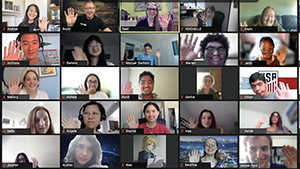
1000+ Participants
DO-IT serves over 1,000 students with disabilities in our programs. Activities in 2021 included workshops, networking events, mentoring, disability advocacy events, and five weeks of college-preparation summer programs. Through these activities, students build job seeking skills, improve their resumes, learn how to be successful in college, gain access to assistive technology, and much more.
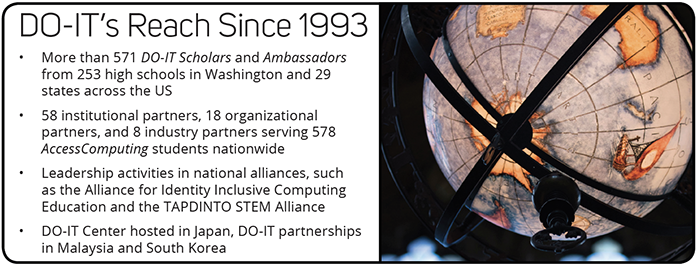
Participant Spotlights
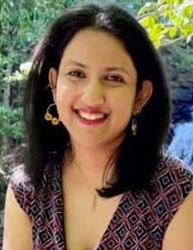
Meenakshi Das, Auburn University / Microsoft
Meenakshi is a software engineer at Microsoft and a recent graduate of Auburn University with a master’s degree in computer science. She has been an active member of AccessComputing for several years, coordinating panels featuring students with disabilities at conferences, participating in conversations in our mentoring community, and attending a capacity building institute. In 2017, Meenakshi was awarded a minigrant to facilitate a one-day workshop for students who are visually impaired along with AccessComputing partner, Dr. Sarah Lee. Meenakshi has engaged in many activities that benefit the disability community, such as running a Facebook support group for working professionals with disabilities, Working With Disabilities. This group provides a space to discuss ableism, accessibility, and share useful resources with each other. Meenakshi says, “AccessComputing helped me realize my passion for accessibility which is an important part of the work I do today. Without their support, I wouldn’t have had a successful college career.”
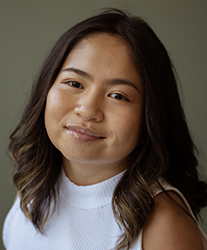
Teresa Buchholz, Seattle University
Teresa is a senior at Seattle University working toward a bachelor of science in psychology and plans on pursuing a master of social work at Columbia University. She works to make a difference for people both locally and nationally, through leadership positions on campus and with the Seattle University Dance Team, as well as by mentoring and coaching the limb different community across America and through her goals to work with underprivileged incarcerated youth. She also plans on opening a gym with adaptive workout gear. Her goals are rooted in empowering others and continuing advocacy work for the disabled community. Teresa said “Engaging in DO-IT as a DO-IT Scholar and Ambassador, DO-IT prepared me to recognize what living in an able-bodied world looks like. They specifically taught us how to advocate, navigate, and be a change maker in a greater effort to destigmatize the world around us. The most important thing I took away from the program is the strength I gained in embracing my identity as a disabled woman. DO-IT is a program that serves to empower each person to embrace the beauty within their own disabilities while also amplifying the need for voices like ours to create a more just and humane world.”
DO-IT 2021 Highlights
|
AccessADVANCE video |
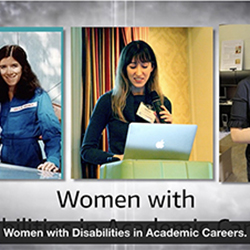 |
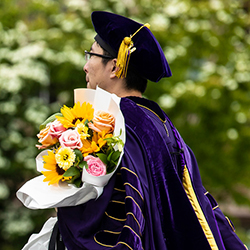 |
AccessComputing celebrated |
|
DO-IT successfully ran |
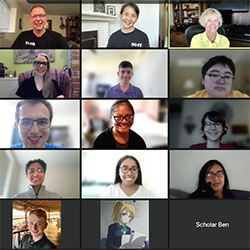 |
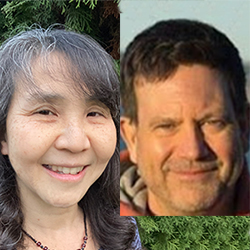 |
DO-IT hired two new staff |
Funding, Impact, and Resources

Funding
The IT Accessibility Team is supported by the University of Washington. DO-IT is funded by National Science Foundation, Washington state, and other donors; visit our funding page to learn more about DO-IT’s funders and opportunities to contribute.
Lasting Impact and Consultation
ATS increases the success of individuals with disabilities in academic and career fields through on-campus support and off-campus interventions for individuals with disabilities, faculty, staff, employers, and other stakeholder groups.
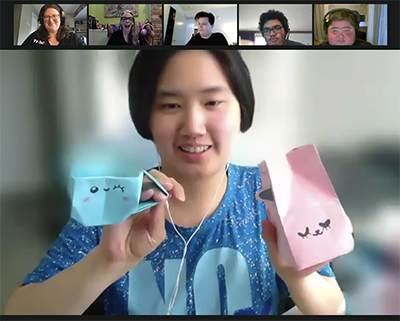
Its impact continues long past the duration of each interaction and activity by developing the knowledge and skills of individuals and creating and widely distributing related resources. You are encouraged to reach out to our teams for consultation, resource-sharing, advocacy activities, and more by emailing us at doit@uw.edu.
Support ATS Efforts!
To support our continued work, visit our Support Page. Find resources online:
Disabilities, Opportunities, Internetworking, Technology
